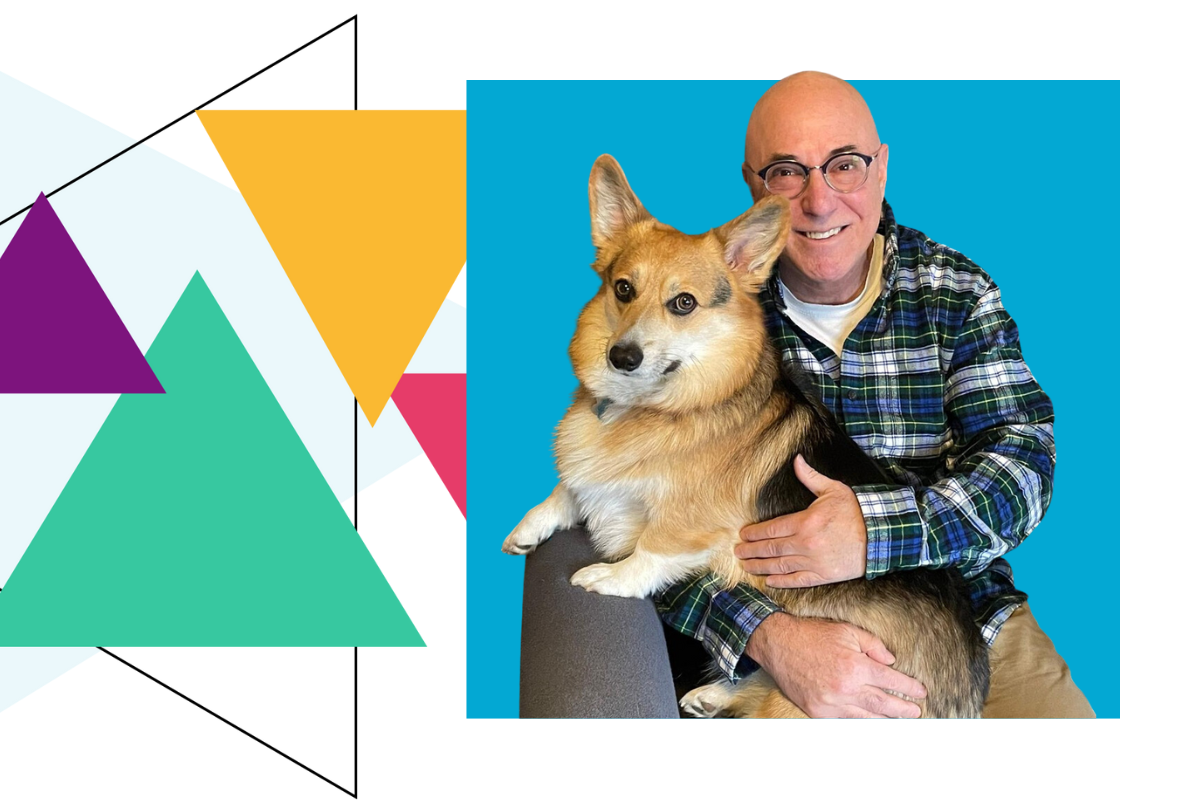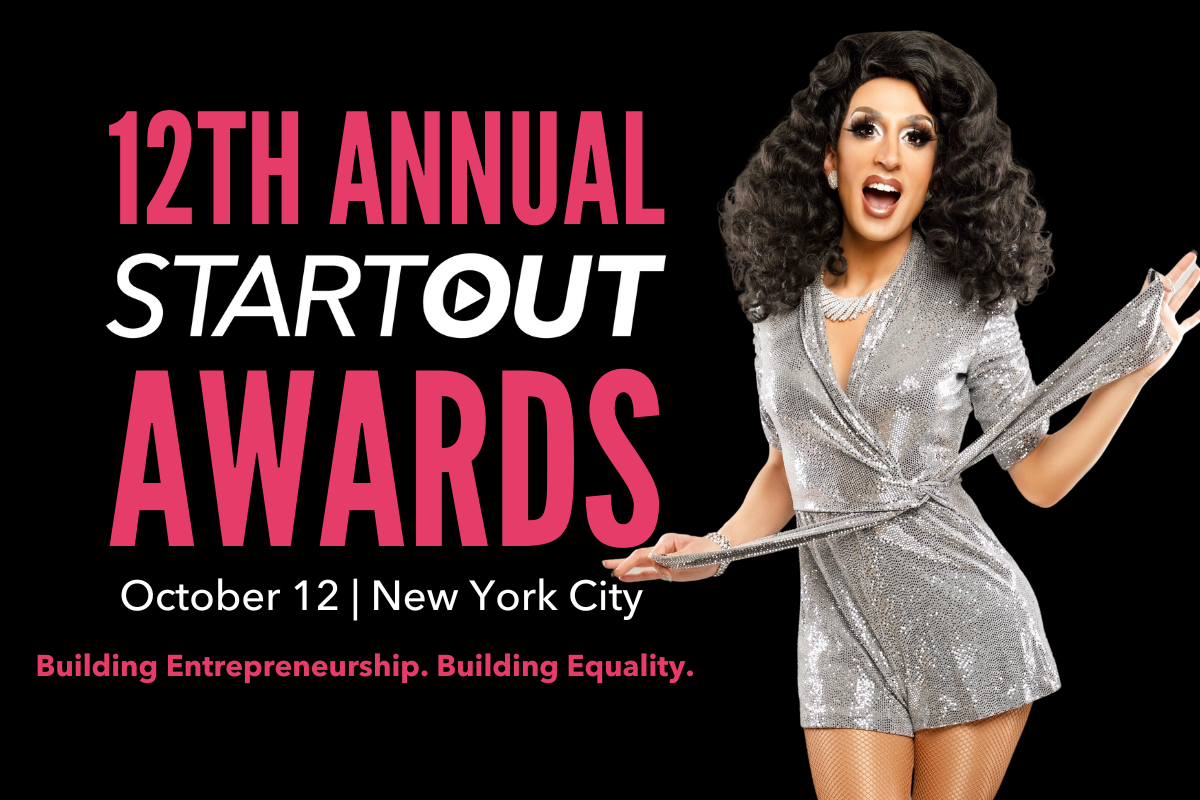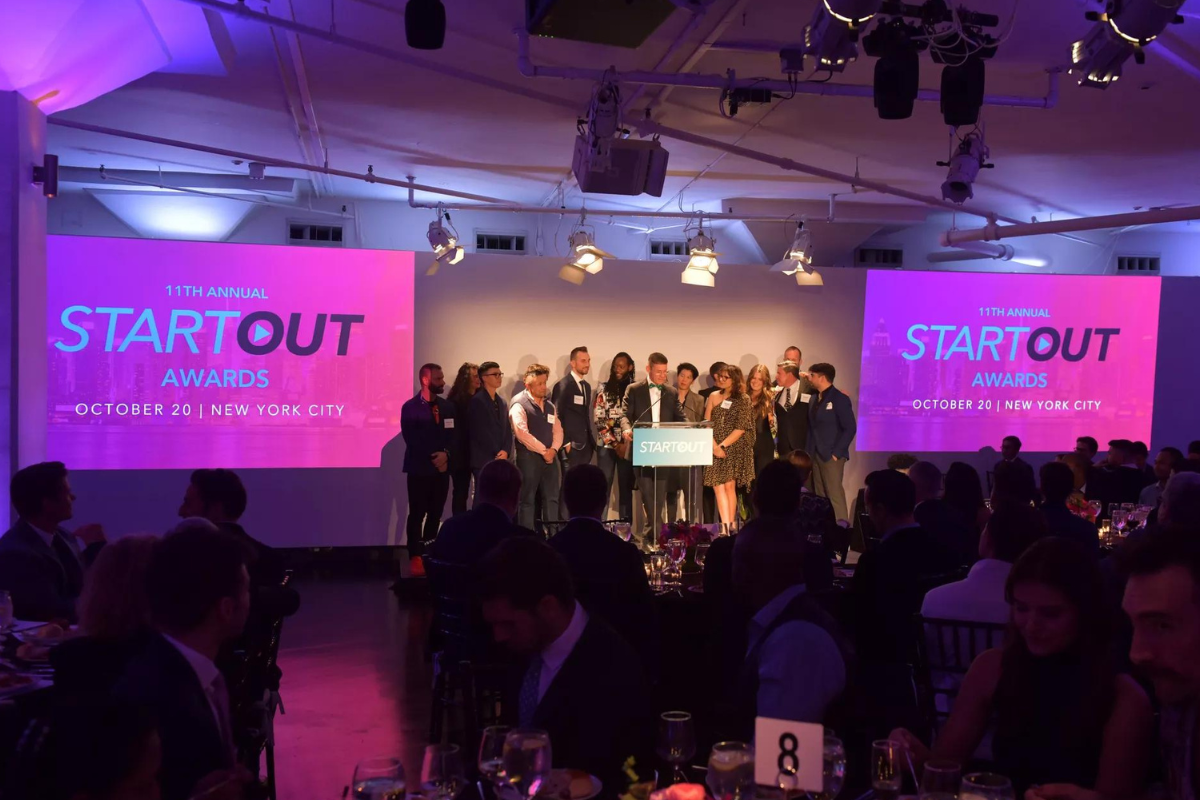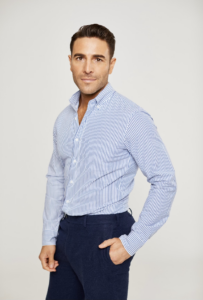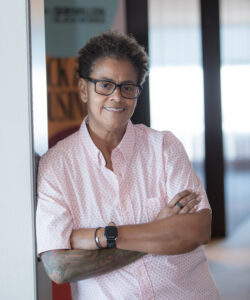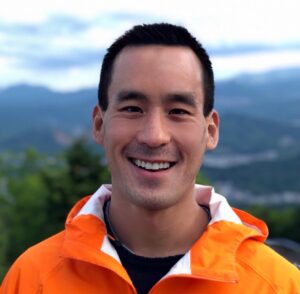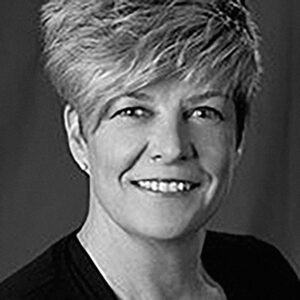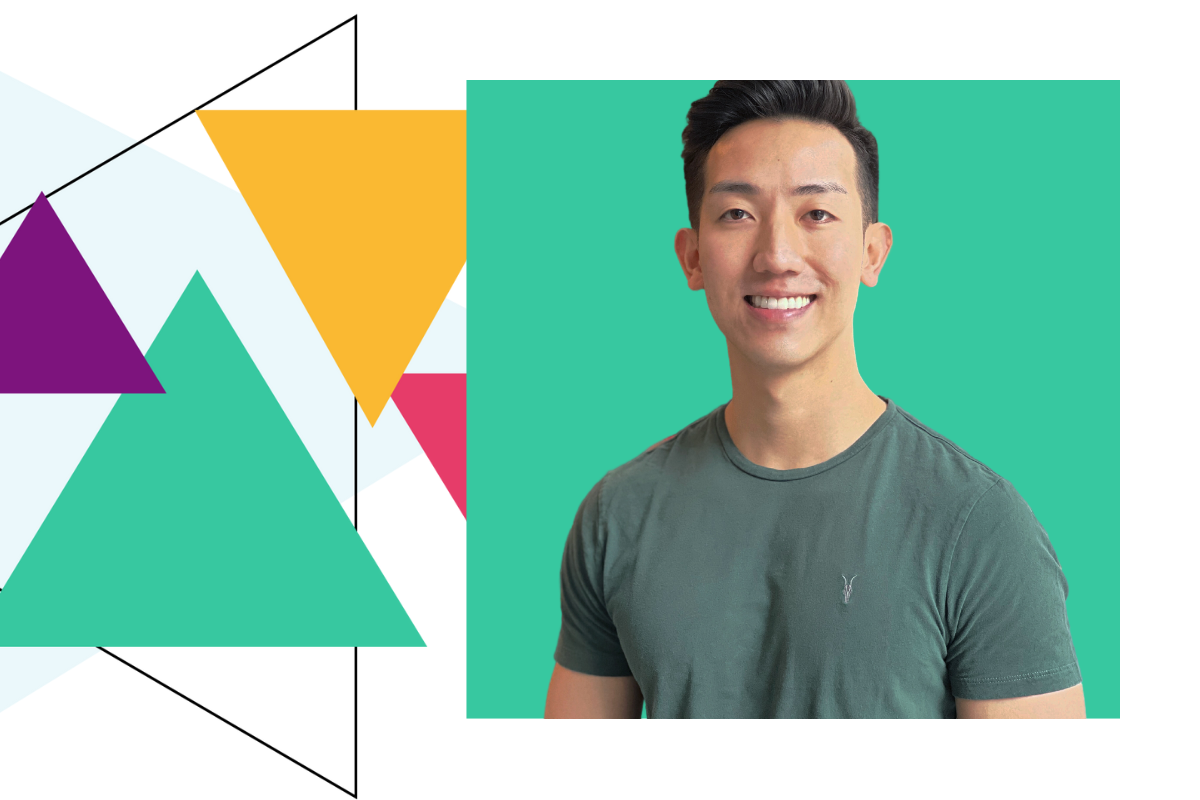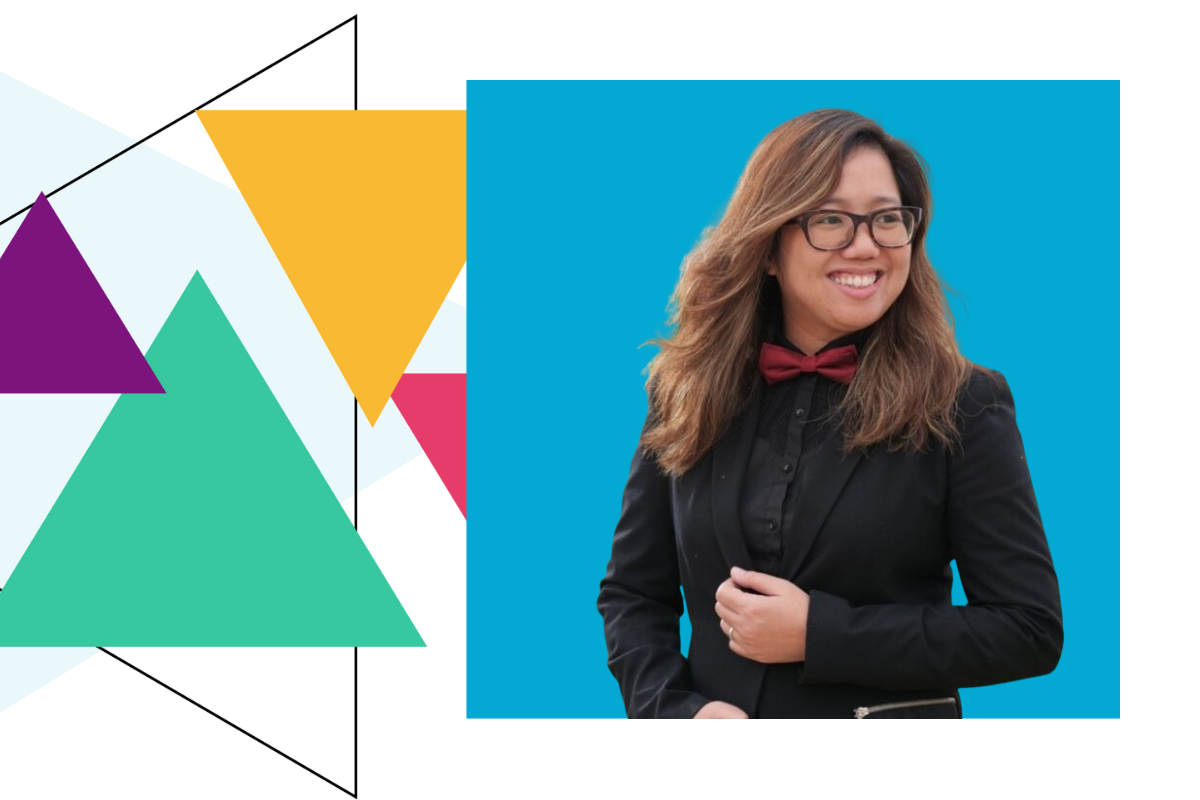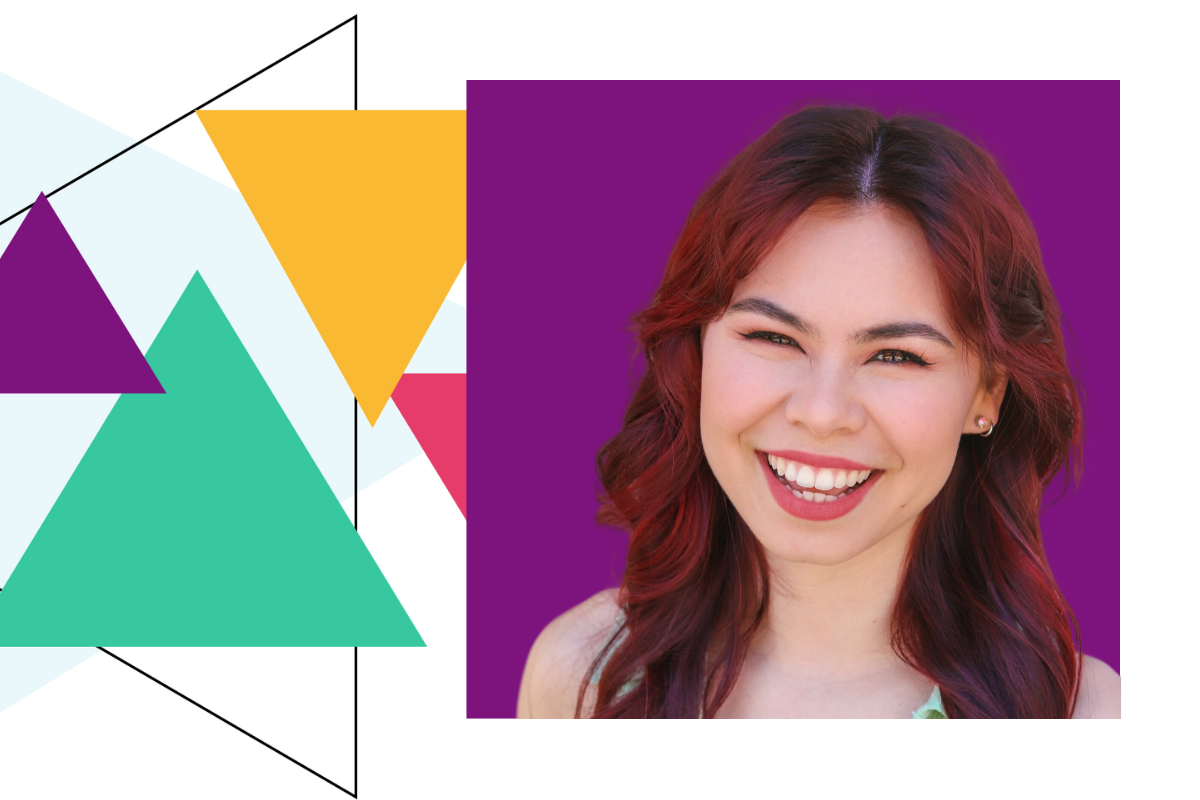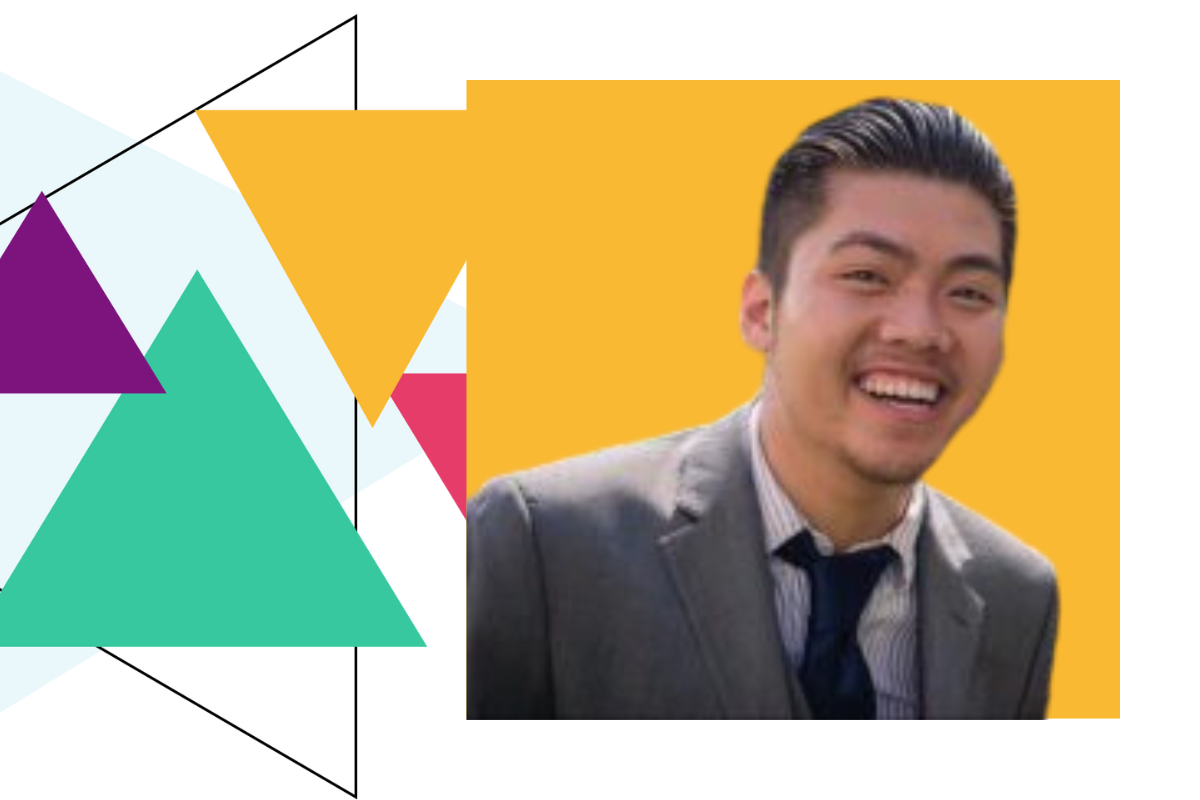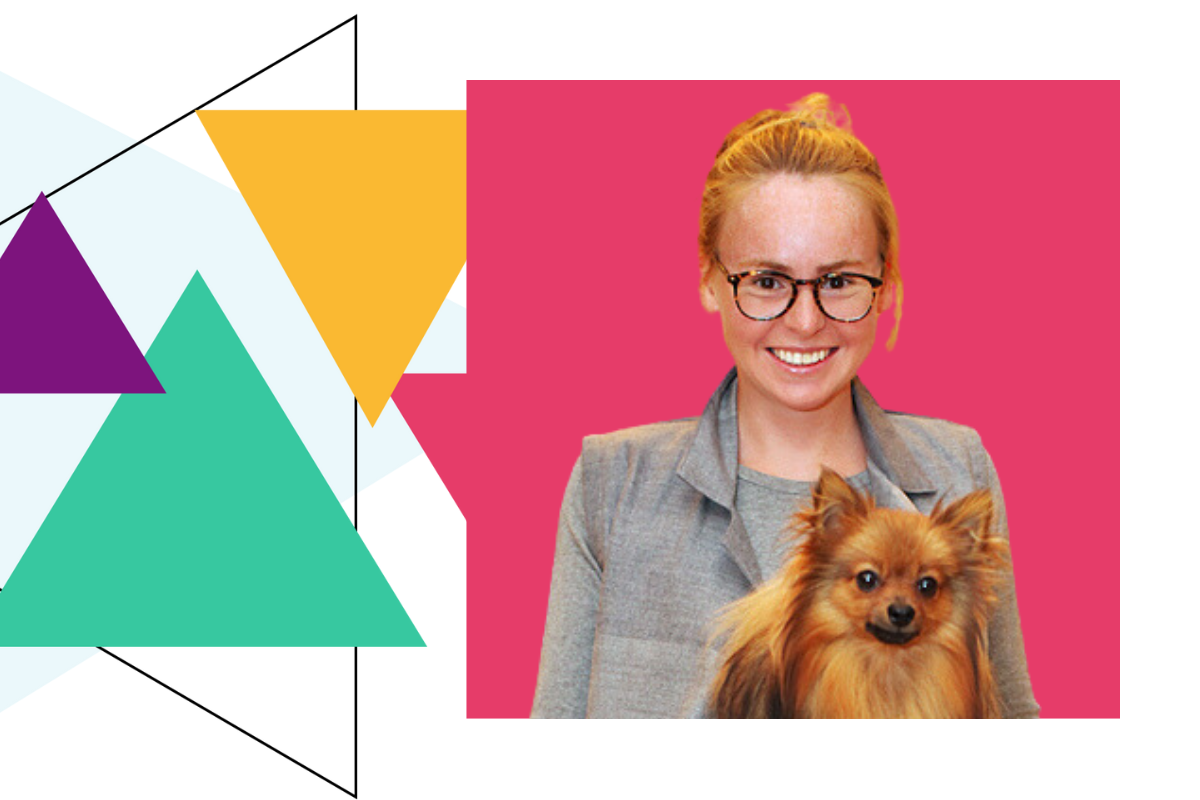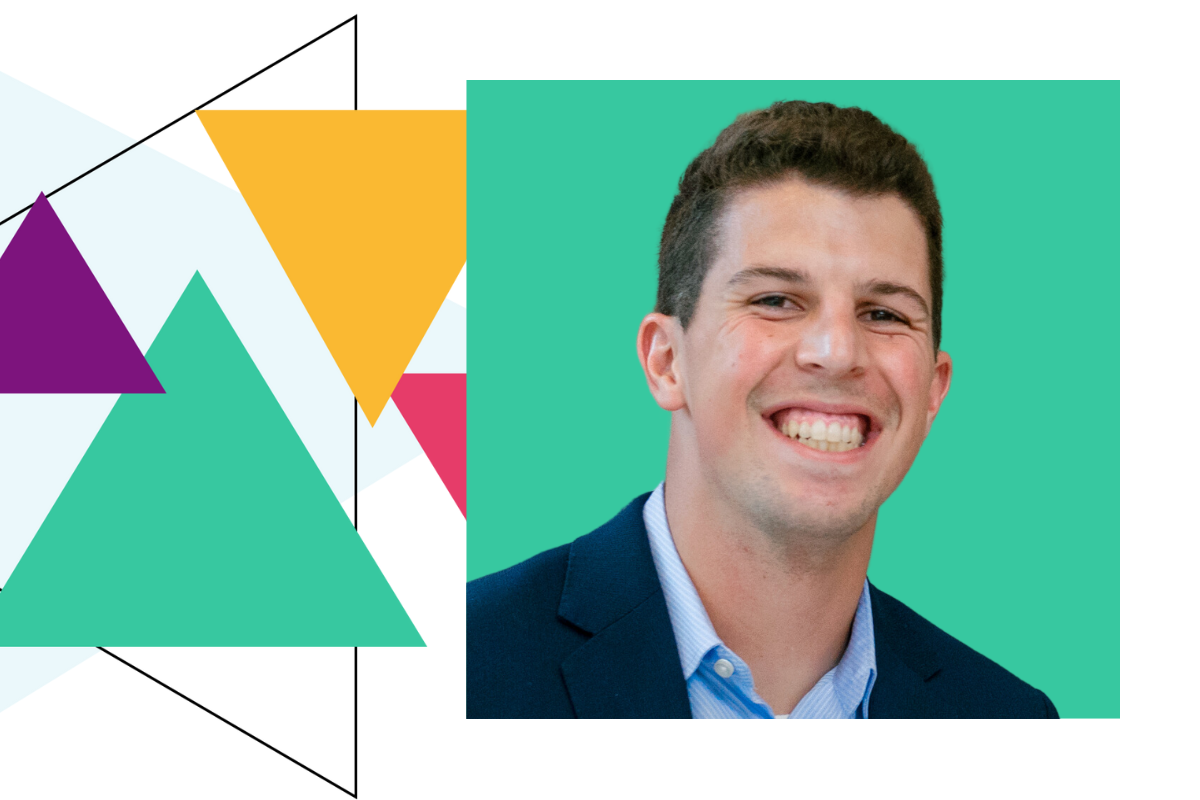Amrei Dizon is a proud 42-year-old lesbian from Quezon City, Manila, Philippines. Growing up in the 80s and 90s, Amrei often felt different in a society that lacked representation for people like her. The journey of self-discovery wasn’t easy amidst societal norms and a lack of role models in the LGBTQ+ community.
As the founder of Vitalstrats Creative Solutions, a creative marketing agency specializing in end-to-end digital content production, Amrei helps clients ideate and strategize their campaigns, working closely with them, from understanding their objectives and market landscape to crafting tailored communication strategies that meet their KPIs.
Amrei, could you please give me some insight into your founder’s journey?
Growing up, I always gravitated toward arts and performance, and my involvement in various art clubs and theater groups allowed me to express my creativity. At the University of the Philippines, my engagement with The UP Repertory Company gave me my first taste of leadership and management.
However, during my J. Walter Thompson Philippines internship, I discovered my true passion. Despite my anxiety and discomfort with the corporate setup, I fell in love with the dynamism of the advertising world, a space where creativity, performance, and impact intersect. After a brief stint in freelance graphic design, I landed a job as a Production Assistant at a small events and video production company. Though I started with little experience, I quickly learned various skills and took on multiple roles out of sheer curiosity and desire for novelty.
Running my company, Vitalstrats Creative Solutions, was initially a trial-and-error process. I voraciously read books and sought advice from fellow entrepreneurs. This learning journey and desire for freedom eventually led me to start my venture. With a small fund of 20k and a room at my parent’s house as an office, I began my entrepreneurial journey.
The arrival of my life partner and current business partner, TJ, in 2011 brought more structure and growth to our business. Her input helped put systems in place and streamline operations, leading to an expansion of our clientele. This organized structure later allowed me to pursue a Masters’s in Entrepreneurship at the Ateneo Graduate School of Business.
Being part of the LGBTQ+ community gave me an additional drive to succeed. The challenges of being different fueled my determination to prove my worth to the world and show my parents that I could thrive and make them proud.
Talk to me about Vitalstrats Creative Solutions. What is your mission, and who do you serve?
Our mission is to foster growth through Strategic Creativity, aiding our clients in building their brand and community, communicating their value, and significantly impacting the people they serve. In parallel, we are committed to developing our team members, providing them with opportunities for learning and growth, and making VCS a safe space for exploration and innovation.
In the last 20 years, VCS has evolved from a bohemian-style startup to a professional creative agency. We started by executing small projects and have since grown to strategize and implement large campaigns for globally renowned brands. As our reach in the industry expanded, we were able to support the causes close to our hearts, contributing to organizations and advocacy groups that we support.
Today, we work across different sectors, serving multinational corporations like Sun Life Financial, Bank of the Philippine Islands, BDO, FedEx, and many others, along with Non-Government Organizations and micro-to-small businesses.
What is it like being an out founder in the Philippines?
Being a founder in the Philippines in the early 2000s was a unique journey, marked by the lack of easily accessible resources and the challenge of navigating the business world as an LGBTQ+ entrepreneur. The internet was in its infancy, limiting its use as a resource for finding clients and accessing entrepreneurial support. Much of what I learned was from hands-on experience, client feedback, and observing other small business practices. Being part of the LGBTQ+ community and experiencing insecurity and rejection motivated me to create a welcoming and inclusive environment at Vitalstrats.
In our early years, the team at Vitalstrats, mainly made up of LGBTQ+ individuals, enjoyed a relaxed, creative, and liberating atmosphere. However, as we evolved, I realized the need for professional processes and a balanced culture to sustain our creativity, cater to those different from us, and build trust with our clients.
The road to establishing Vitalstrats was paved with numerous challenges. Financial difficulties were a significant hurdle, requiring resourcefulness and tenacity to overcome. The lack of access to industry networks and entrepreneurs for advice and support made it particularly challenging. We faced periods of work overload followed by lean seasons, posing challenges in financial management and human resources. Our resilience and problem-solving spirit pulled us through these challenging times. The support and advice of my parents and professional contacts within the LGBTQ+ community were instrumental in these early years.
The landscape has improved for entrepreneurs in the Philippines, with organizations like The Philippine LGBT Chamber of Commerce offering resources and programs to LGBTQ+ professionals and entrepreneurs. Recognizing the struggles I faced as an LGBTQ+ founder, I am driven to contribute to these initiatives, guiding aspiring entrepreneurs to navigate their journey more smoothly.
Being an LGBTQ+ entrepreneur has given me unique insights into creating an inclusive workplace where everyone can express their creativity without fear of judgment. I foster a leadership style that values each team member’s opinions, encourages understanding, and promotes transparent communication. This approach is rooted in my LGBTQ+ identity, promoting inclusivity, respect, and acceptance as core values of our company culture.
As a Board Director of the Philippine LGBT Chamber of Commerce, the first LGBT Chamber in Asia, I’ve had the opportunity to connect with international organizations like NGLCC and StartOut. The experiences and best practices shared in these global interactions have enriched my understanding of diversity and inclusion in business. They have also allowed me to advocate for inclusivity in the marketing and advertising industry. All these experiences contribute to my mission of creating an inclusive and welcoming environment for everyone, aligning with the values of StartOut.
How did you connect with StartOut?
I was first introduced to StartOut through the late Founding Chair of the Philippine LGBT Chamber of Commerce, Brian Tenorio, during my visit to San Francisco in 2018. Since then, I’ve had the incredible opportunity to connect with and mentor fellow LGBTQ+ entrepreneurs worldwide, including in Africa, Ukraine, and the US. This has allowed me to share best practices and broaden my understanding of diverse cultures and business landscapes.
Given the impact of StartOut’s mentor-mentee programs, I’m eager to bring a similar framework to the Philippines. This would be made possible through our local chamber of commerce, as we aim to create an even more expansive and robust network for our LGBTQ+ entrepreneurs, both locally and globally.
I believe that the visibility of LGBTQ+ leaders is paramount. Up-and-coming entrepreneurs and professionals in our community should have role models in various fields to look up to, and I strive to be one of those role models.
Despite existing support systems in the Philippines for women, youth, and disabled groups, there is a noticeable absence of support specifically for LGBTQ+ professionals and entrepreneurs. I envision a future where we can accurately quantify the economic contributions of LGBTQ+ businesses, further enhance these contributions, and continuously provide mentorship, financial support, and other necessary resources to our community.
Unfortunately, workplace discrimination remains a persistent issue, and the government has deemed the long-proposed SOGIE Bill a non-priority. However, we continue to advocate for inclusivity and equal rights by working with local governments and private businesses to empower LGBTQ+ entrepreneurs. We’re also planning a certification program for businesses to endorse them as LGBTQ+ friendly and inclusive. With organizations like StartOut, we can create a future in which the Philippine business landscape is diverse, inclusive, and thriving.
What are you looking forward to in the next year?
In the next year, I eagerly look forward to the 20th Anniversary of Vitalstrats Creative Solutions (VCS), the company I founded. We’re focused on understanding our ever-evolving consumer base and market, striving to be more data-driven in our decision-making processes. My partner TJ and I are also conscientiously working on succession planning, aiming to cultivate the next generation of leaders at VCS.
What advice would you give to a founder looking to launch their startup?
To founders preparing to launch their startup, here are my key pieces of advice:
- Foster the right mindset. Resilience and patience are invaluable in navigating business challenges. View failures as learning opportunities, not setbacks. Remain a lifelong learner, open to new ideas and continuous improvement.
- Understand your market. A great product can only fall flat with market relevance. Continually adapt and tailor your offerings to meet market needs and provide value to your consumers.
- Build a strong team. Surround yourself with individuals who complement your skills, share your vision, and can contribute to realizing your company’s purpose.
- Seek support and mentorship. Connect with experienced entrepreneurs, and join relevant networks or organizations, like StartOut, which offer invaluable resources to aid your growth. Remember, you are not alone in this journey!
In conclusion, my journey as an entrepreneur, particularly as an LGBTQ+ entrepreneur in the Philippines, has been a voyage of continuous learning, resilience, and adaptability. I’ve navigated challenges and celebrated triumphs while striving to create a safe, inclusive, and vibrant space for everyone in our company.
Throughout these experiences, I’ve recognized the tremendous power and value in networks and support groups like StartOut. They foster growth and empower individuals in the LGBTQ+ community to break barriers and rise to their potential.
As we forge ahead, I remain committed to driving our company forward and contributing to the growth of the LGBTQ+ entrepreneurial community in the Philippines. I hope to foster more role models, help develop small businesses, and progress our inclusion advocacy. In partnership with organizations like StartOut, we can continue to create a more diverse, inclusive, and equal world. After all, a society that celebrates all its members, regardless of who they are or who they love, is not just a fairer society but a more prosperous one.
Thank you for this opportunity to share my journey and vision. Together, we can and will make a difference.

